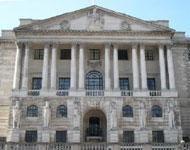What are the challenges, key developments and government policies that look set to shape 2016? şĂÉŤĎČÉúTV asked key industry insiders to make a call on what they think will become the major talking points of the next 12 months

The defining economic event of 2016 has probably already taken place: that is the US Federal Reserve Bankâs decision to increase the base interest rate of the worldâs biggest economy for the first time in seven years.
Simon Rawlinson, head of strategic research and insight at Arcadis, says the impact of this move will be felt keenly in the UK.
The emerging markets investors, who have played such a crucial role in propping up the property market, will see their local currencies lose value against the dollar.
âThe UK will still be attractive but it will be less affordableâ, says Rawlinson, who predicts that one or two major residential schemes will be canned as a result.
The Bank of England (pictured) too is expected to raise its base rate from 0.5%, although the expected timing of this move keeps slipping.
The UK will still be attractive to emerging markets investors but it will be less affordable
Simon Rawlinson, Arcadis
Cenkosâ Cammack says: âWhile it may not be a massive hurdle for the industry to get over in terms of impact on demand, it could have an influence on sentiment going forward.â
Overall UK GDP is expected to grow by 2.7% in 2016, broadly in line with last yearâs performance.
Inflation meanwhile is likely to remain low following the recent fresh plunge in global crude oil prices, although construction has not really seen the benefit of falling prices.
Overall build price inflation is likely to be 4-5%, says Rawlinson, as skills shortages give employees and subcontractors the whip hand when negotiating payment.
He adds that reinforced steel bar prices may fall as low as ÂŁ40/tonne during 2016 as demand for the material from China continues to soften.
âThatâs spectacularly cheap but thatâs probably the only area where employers see deflation coming through,â he says.



























No comments yet